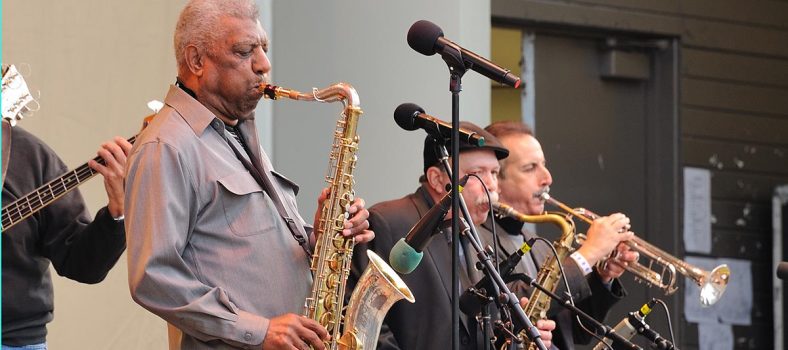If one were attempting to design a prototype for the quintessential contemporary musician, trumpeter/fluegelhornist/composer Russell Gunn is the model. A certified member of the hip-hop generation, Russell’s early aspirations in the world of rap music took precedence over the trumpet that he began playing in fourth grade. When he reached sixteen, his dedication to the art of jazz took shape.
Rather than abandoning the music he loved, he simply applied its energy, spirit and fiercely proud intellectual rage to the jazz idiom, creating a synthesis that is truly contemporary and singular.
Gunn has developed his music from a wide variety of musical influences. In his case, Gunn weaves together elements of Cuban, Brazilian, African,”Go Go” music, and Hip-Hop into an adventurously progressive jazz style that pays tribute to its tradition while also extending the form.
Born in Chicago, Russell was nine years old when his family moved to East St. Louis, Illinois. Always interested in music, at the age of 10, he selected the trumpet as his instrument. At Lincoln high school in East St. Louis, Gunn began a membership in his school band where his cousin Anthony Wiggins, the band’s featured trumpeter, and the band director Ron Carter (not the legendary bassist, the legendary jazz educator) fueled his musical interest.
After spending two years at Mississippi’s Jackson State University on a full music scholarship, Gunn moved back to East. St. Louis, freelancing and working odd jobs.
It was while performing at a club called Cicero’s in St. Louis in 1993 that the great saxophonist/composer and co-founder of the World Saxophone Quartet, Oliver Lake happened to hear the young trumpeter, and immediately invited him to come to New York for a performance at the Brooklyn Museum.
A fortuitous appearance at a 4am jam session at New York’s famed Blue Note club, Gunn was heard by Denis Jeter, an assistant to Wynton Marsalis at Lincoln Center, who recommended him for the third trumpet chair in Marsalis’ Blood on the Fields. Receiving rave notices for his work with the Lincoln Center Jazz Orchestra, Gunn began to earn recognition as one of the most dynamic and exciting musicians of his generation. Continuing to freelance with Lake and various other top jazz artists, Gunn began leading his own groups and in 1994 and issued his first recording for the legendary Muse record label, “Young Gunn”.
Suffering undue criticism from the neo-conservative jazz mainstream for his hip-hop culture style of dress, Russell’s virtuoso abilities and command of all musical styles from funk to the avant-garde evidenced a serious new talent on the scene.
Gunn’s eclectic musical approach also brought him together with artists like Cee-Lo , Maxwell, D’Angelo, Ne-Yo, Branford Marsalis, and Jazz at Lincoln Center, while continuing to perform with his own groups and push the boundaries of how music is heard.
With a singular style that incorporates the influences of masters like Miles Davis, Lee Morgan, and the underrated Booker Little, Gunn has continued to gain recognition for his own music through touring and well-received albums, including the Grammy-nominated Ethnomusicology, Vol. 1 and Ethnomusicology Vol. 2





